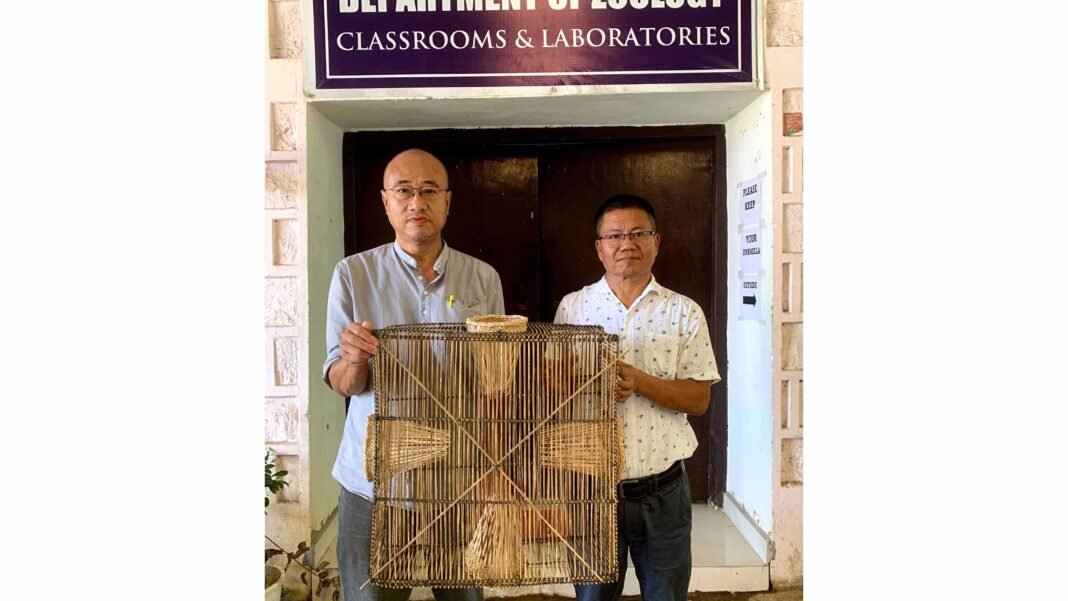In a significant breakthrough, a research team from Nagaland University (NU) has designed and patented an innovative fish trap—“BR Fishing Trap”—crafted entirely from locally available bamboo and plastic threads. The eco-friendly, low-cost device is aimed at supporting fishing in hill streams and cage culture fish farms, offering an affordable alternative to expensive market-based gear.
The innovation was awarded a patent in the United Kingdom (Patent No. 6399114) on October 25, 2024, further strengthening NU’s reputation for research-driven societal solutions.
The project was undertaken by NU Assistant Professor, Department of Zoology, Dr. Pukhrambam Rajesh Singh, and Prof. Bendang Ao, Department of Zoology. Their research focused on the diversity of Ichthyofauna and plankton in the Milak and Dikhu rivers of Mokokchung district.
Faced with challenges due to the high cost and limited availability of fishing gear, the team collaborated with local bamboo weavers, leading to the creation of the BR Fishing Trap.
Congratulating the researchers, NU Vice Chancellor, Prof. Jagadish K Patnaik, lauded the innovation as a symbol of how indigenous knowledge and local resources can be harnessed to promote sustainable growth. He said the device would directly benefit communities and elevate Nagaland’s role in global sustainable practices.
The BR Fishing Trap is a box-shaped, lightweight device (22×8 inches) with four circular entrances (6 inches each) on all sides, one of which is removable for easy fish release and cleaning. Made from bamboo strips and plastic threads, the trap is durable and suitable for use in both rivers and cage culture fish farms.
Dr. Rajesh Singh highlighted that fishing in hill streams often relied on costly gear that was not always suitable. By engaging traditional bamboo artisans, the team developed a cost-effective and durable solution that also promotes local craftsmanship. He expressed hope that the innovation would inspire more community-driven solutions.
Beyond its ecological benefits, the BR Fishing Trap holds strong socio-economic potential. By utilizing local materials and skills, it can foster regional enterprise, job creation, and livelihood security for fishing communities across Nagaland and beyond.
NU researchers patent fish trap
Dimapur

